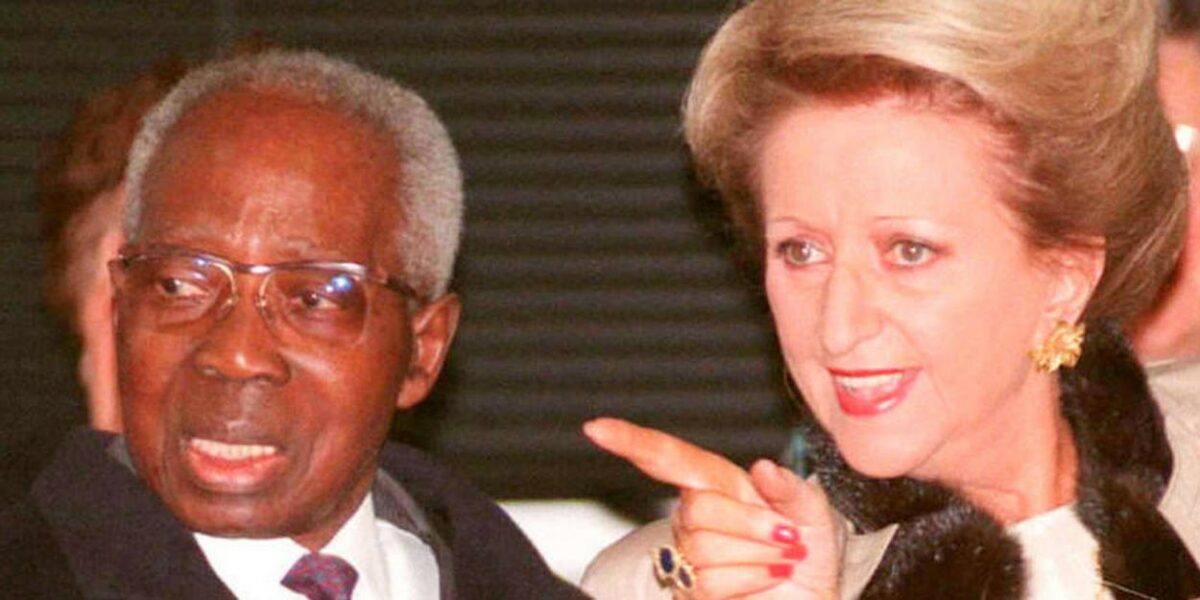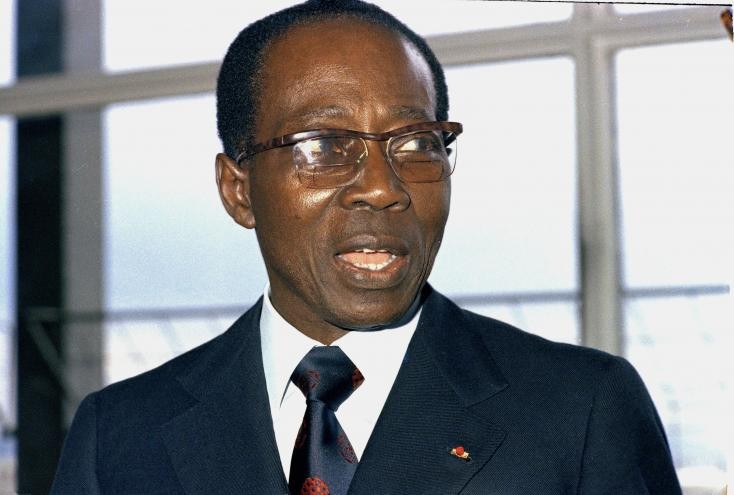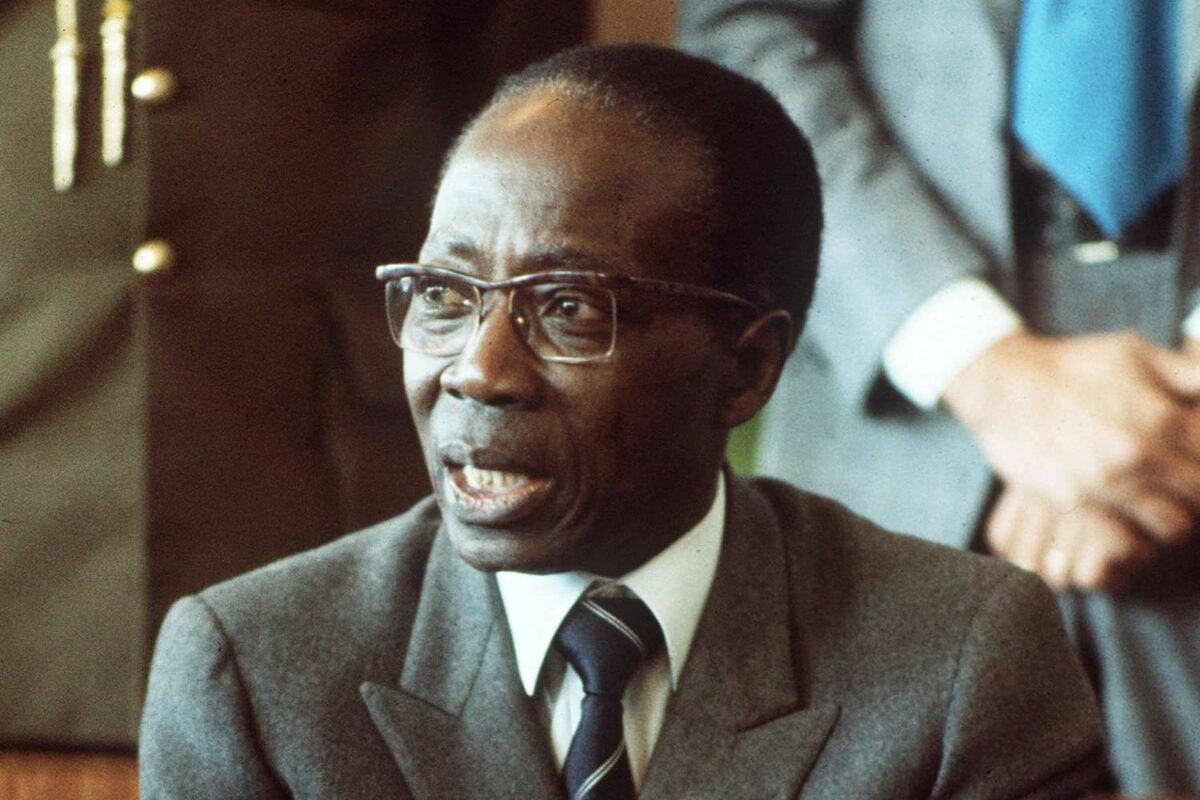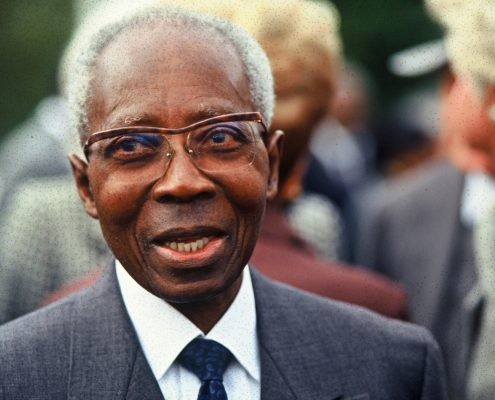Leopold Sedar Senghor (1906–2001) was a Senegalese poet, philosopher, and politician. He played a key role in Senegal’s independence and was the first President of Senegal. Senghor was also a leading figure in the Negritude movement that focused on promoting African identity and heritage. A trailblazing poet, whose eloquent verses not only captured the essence of his homeland but also fueled unity. In the article below we are going to explore his enduring visions and legacy.
Key Facts
- Name: Leopold Sedar Senghor
- Birth Year: 9th October 1906
- Birth Country: Joal, Senegal
- Gender: Male
- Best known for: For his fantastic poems
- Schools: Catholic Mission School, Lycee Van Vollenhoven
- Death Date: 20th December 2001
- Death Country: Verson, France

Early Life and Political Career of Leopold Sedar Senghor
Léopold Sédar Senghor was born on October 9, 1906, in Joal, Senegal. He pursued higher education in Paris, earning a degree in philosophy and later becoming the first African agrégé (a high-level teaching qualification) in French. Senghor’s political journey began in the 1930s when he became involved in the négritude movement, emphasizing African cultural identity.
In 1945, he co-founded the Senegalese Democratic Bloc, advocating for greater political representation for Africans. Senghor became Senegal’s first African deputy to the French National Assembly in 1946. Over the years, he held various ministerial positions, contributing to Senegal’s path to independence in 1960. Senghor, marking his political career with the pursuit of Africanism, served as Senegal’s first president until 1980.
During The Presidency of Leopold Sedar Senghor
Léopold Sédar Senghor served as the first President of Senegal from 1960 to 1980. During his presidency, the following were manifested;
- Independence and Nation-Building (1960): Senghor played a crucial role in Senegal gaining independence from France in 1960, marking the beginning of his presidency reign.
- Social Policies: He implemented a form of African socialism, emphasizing on community development and a balance between traditional African values and modernization.
- Cultural Influence: As a poet and philosopher, Senghor promoted the concept of négritude. He aimed to integrate these cultural values into the national fabric.
- Economic Development: Senghor focused on agriculture and infrastructure projects. However, the results were mixed, and Senegal faced economic challenges during his presidency.
- Senegal experienced relative political stability under Senghor’s leadership: Contrasting with political instability in some neighboring countries. He emphasized consensus-building and tolerance.
- Resignation (1980): Senghor voluntarily resigned from the presidency in 1980, setting a precedent for peaceful transitions of power in African politics. Abdou Diouf succeeded him.
Poems Written by Leopold Sedar Senghor
Sedar Senghor ‘s story involved being a renowned poet and his work had a profound influence on African literature and intellectual discourse in institutions. Some of his notable poems include:
- “Prière aux masques” (“Prayer to the Masks”): This poem reflects Senghor’s exploration of African identity and spirituality, drawing inspiration from traditional African masks.
- “Femme noire” (“Black Woman”): Senghor celebrates the beauty and strength of black women in this poem.
- “Chaka”: This poem explores the historical and mythical figure of Shaka Zulu, the warrior-king of the Zulu Kingdom, examining themes of power, leadership, and cultural identity.
- “Élégie pour Martin Luther King” (“Elegy for Martin Luther King”): Senghor pays tribute to the civil rights leader Martin Luther King Jr., expressing sorrow over his assassination and emphasizing the universal struggle for justice.
- “Joal”: In this poem, Senghor reflects on his hometown, Joal, Senegal, weaving personal memories and stories with broader themes of identity and connection to the land.

“Eurafrica”: The Organization fought against by Leopold Sedar Senghor
A federation that would link Africa and Europe as equal partners is something Léopold Sédar Senghor did not advocate for or support the concept of “Eurafrica.” In fact, he was critical of such ideas that proposed a fusion of European and African cultures without due recognition of the value of African culture. He emphasized the need for Africans to embrace their own cultural heritage rather than subsuming it under European influences.
In his philosophical and political writings, Senghor argued against cultural assimilation and championed the idea of a harmonious coexistence between African and European cultures, where each maintained its unique characteristics. He was critical of any notion that implied the dominance or subordination of one culture to another, advocating for mutual respect and recognition of the diversity of human civilizations. Also Read: Morocco: A Comprehensive Profile of a Nation Steeped in History
Legacy and Impact of Leopold Sedar Senghor
Léopold Sédar Senghor’s legacy is multi-faceted and has had a lasting impact, particularly in the realms of politics, literature, and cultural identity through such practices;
- Négritude Movement: Senghor co-founded the négritude movement, which sought to celebrate and affirm the cultural identity of black Africans. This movement had a profound influence on the cultural and intellectual landscape of Africa and the diaspora, inspiring generations.
- Political Leadership: As the first President of Senegal, Senghor played a key role in the country’s path to independence and established a tradition of peaceful transitions of power. His commitment to democracy and political stability set a precedent in African governance.
- African Socialism: Senghor’s advocacy for African socialism aimed at combining traditional African values with modern ones. While his economic policies had mixed success, his vision influenced subsequent leaders in their pursuit of development strategies rooted in African values.
- Cultural Influence: Senghor’s poetry and philosophical writings were infused with the concept of négritude which contributed to a reclamation of African cultural pride. His exploration of the intersection between African and European cultures influenced the broader discourse on identity and cultural diversity.
- Intellectual Contributions: Senghor, a philosopher and poet, contributed significantly to intellectual discussions on the relationship between colonized and colonizer, the importance of cultural diversity, and the role of African thought in global conversations.
- Global Recognition: Senghor received numerous international honors, including being the first African elected as a member of the Académie française. His global recognition helped elevate the status of African literature and philosophy on the world stage.

Honors of Leopold Sedar Senghor
Leopold Sedar Senghor, a prominent Senegalese poet and politician, received numerous honors during his lifetime. Some of the notable ones include being the first President of Senegal (1960-1980), co-founder of the Negritude movement, and a member of the Académie française. He was also awarded the Grand Cross of the Legion of Honor by the French government for his contributions to literature and culture. Senghor’s legacy extends beyond his political achievements, as he played a significant role in promoting African identity and culture.
Famous Quotes by Leopold Sedar Senghor
Here are some notable quotes attributed to Léopold Sédar Senghor:
- “Emotion is African, reason is Greek.”
- “Negritude is not a museum. It is a way of seeing blacks and whites and Oriental’s and yellow and reds and browns.”
- “I do not feel that I am a man of the left. I feel that I am a man of the African race.”
- “In Africa, when an old man dies, it’s like a library burning.”
- “Culture is an elevated reality created by the soul and for the soul, that draws the soul out of its enclosure and transfigures it.”
- “I am not a racist, because I detest and repudiate all forms of racism. I believe only in one race, the human race.”



